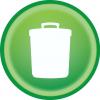
Avoid "Shock and Withdrawal"
Do you find it hard to turn your heat down to the recommended temperature all at once? Try turning it down a bit more each week and adding blankets and sweaters as you go.
Be Shade Smart
On sunny days during the cool months, keep draperies and shades open for south facing windows. Close them at dusk. During warm months, keep shades closed.
Bigger Is Not Always Better
A furnace that is too large for your space does not necessarily heat your home any better, but it does drive up your heating bill. When choosing a new furnace look for an energy efficient one (92% AFUE or higher).
Ceiling Fan Smarts
Fun fact: Your ceiling fan has a switch that helps the fan cool or heat, depending on the direction it is switched. In the summer, make sure your ceiling fan is pushing air downward (counter clockwise), and in the winter the fan should be pushing air upward (clockwise).
Do You Need a New Furnace?
Not sure if you need a new furnace? You can save money by upgrading your furnace to an energy-efficient model. Does your furnace fit into one of these categories? (1) Is more than 15 years old; (2) Needs frequent repairs; (3) Creates uneven temperatures (some rooms too cold and some too hot); (4) Creates humidity problems. If so, you may want to consider your options.
Install a Time-Programmable Thermostat
When looking into a programmable thermostat, check into one that offers pre-programmed settings, such as "wake," "day," "evening" and "sleep." This way, you have to set the temperature only once, instead of having to remember to reset it multiple times per day.
Install an Energy-Efficient Furnace
In the market for a new furnace? Install an energy-efficient furnace (92% AFUE or higher). They run about $6,000 but can save you up to 20% of your heating costs.
Keep It Clear
Make sure heating registers and radiators are not blocked by furniture, drapes or other objects.
Myth Buster: Gas Fireplaces
Myth: A gas fire in the fireplace will help warm my house and reduce my overall gas usage.
Fact: Through a study by the Gas Technology Institute, gas fireplaces actually increase gas usage in most homes. Gas fireplaces range from 5-60% efficiency and gas furnaces have 80-90% efficiency.
Myth Buster: Space Heaters
Myth: Use space heaters to lower your heating bill – they use the same amount of energy as a coffee maker.
Fact: A space heater and coffee maker do draw a similar current – but remember a coffee maker is only on for a short period of time, while a space heater will be used for consecutive hours.
Myth Buster: Wintertime Dilemmas
Myth: If I turn down the heat while I am gone, it will cost more than I save to warm the house back up when I get home.
Fact: The longer your house remains at a lower temperature, the more energy you save. If you have a programmable thermostat, set it to turn back when you leave and to warm up 30 minutes before you come home.
Plant Trees to Save Money
Consider planting shade trees on the south and west sides of your home to cool during summer and protect during the winter. You can also plant shrubs around your foundation.
Replace Old Windows
By replacing single-paned windows with double-paned ENERGY STAR windows, you can reduce your heating and cooling costs. Note, the U-Factor (found on the label) should be 0.3 or less.
Set Your Temp Back
Fun fact: You could lower your heating and cooling bills by up to $180 per year by setting the temperature cooler in the winter (or warmer during the summer) by 10 degrees for eight hours each day.
Stay Cool
The best time to buy an air conditioner is after the hot season. When shopping for an air conditioner, be sure to look for ENERGY STAR models.
Winter Energy Tips
According to the U.S. Department of Energy, many homes have the potential to eliminate 50% of their annual energy use. When it comes to heating, one way to do this is to seal air leaks. Fixing these leaks can save 40% of your heating energy. Usually, the largest sources of leakage are the rim joint areas at the top of the basement foundation or holes in the attic.
A tiny crack around a window may not seem like a big deal; however, according to the U.S. Department of Energy, a 1/16-inch crack is like leaving the window open 3-inch all year long!











